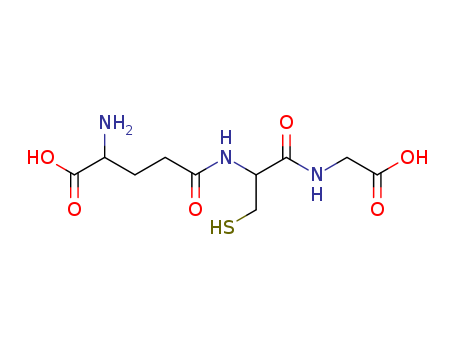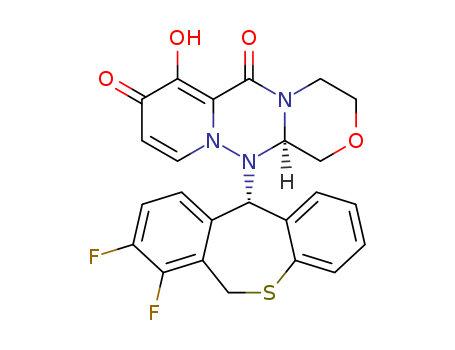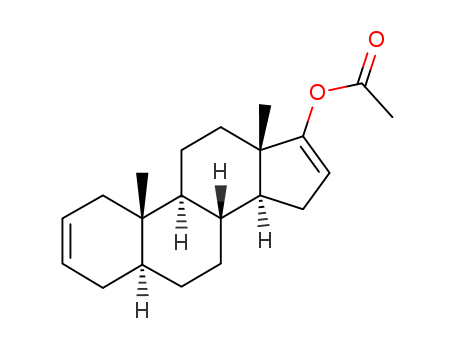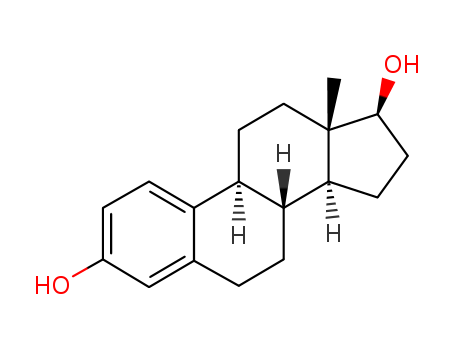Crizotinib PF-02341066 high purity, low price, in stock, free sample CAS NO.877399-52-5
- Min.Order: 10 Gram
- Payment Terms: T/T,
- Product Details
Keywords
- 877399-52-5
- Crizotinib
- PF-02341066
Quick Details
- ProName: Crizotinib PF-02341066 high purity, lo...
- CasNo: 877399-52-5
- Molecular Formula: C21H22Cl2FN5O
- Appearance: white crystal
- Application: API intermediate
- DeliveryTime: 1 day
- PackAge: Aluminum foil bags;CARDBOARD DRUMS
- Port: Shanghai, Qingdao
- ProductionCapacity: 100 Kilogram/Day
- Purity: 99.8%
- Storage: Shady, sealed, dry place
- Transportation: By air or by sea.
- LimitNum: 10 Gram
- Impurity: ≤0.1%
Superiority
Superiority 1.Powerful R & D team
2.The ability of quantized production,from grams to tons;
3.Various kinds of advanced equipment in the laboratory and plant;
4.Strict QC standard to meet the demand of customers,advanced equipment for analysis and a ssay;
5.Efficient and safe logistic plans for chemical products transportation;
6.Excellent after-sale service.
7. Higest quality and good package
Details
| Crizotinib Basic information |
| Product Name: | Crizotinib |
| Synonyms: | 3-[(1R)-1-(2,6-dichloro-3-fluorophenyl)ethoxy]-5-[1-(4-piperidinyl)-1H-pyrazol-4-yl]-2-Pyridinamine;(R)-3-(1-(2,6-dichloro-3-fluorophenyl)ethoxy)-5-(1-(piperidin-4-yl)-1H-pyrazol-4-yl)pyridin-2-amine;3-[(1R)-1-(2,6-Dichloro-3-fluorophenyl)ethoxy]-5-[1-(4-piperidinyl)-1H-pyrazol-4-yl]pyridin-2-amine;Crizotinib;PF 2341066;PF-02341066;PF-2341066/Crizotinib;3-[1-(2,6-Dichloro-3-fluoro-phenyl)-ethoxy]-5-(1-piperidin-4-yl-1H-pyrazol-4-yl)-pyridin-2-ylamine |
| CAS: | 877399-52-5 |
| MF: | C21H22Cl2FN5O |
| MW: | 450.343 |
| EINECS: | |
| Product Categories: | Aromatic;Chiral Reagents;Heterocycles;Inhibitors;Intermediates & Fine Chemicals;Pfizer Compounds;Pharmaceuticals;Inhibitor;Anti-cancer & immunity |
| Mol File: | 877399-52-5.mol |
|
|
|
| Crizotinib Chemical Properties |
| Safety Information |
| HazardClass | IRRITANT |
| Crizotinib Usage And Synthesis |
| Non-small cell lung cancer treatment |
Crizotinib is targeted drug for treatment of non-small cell lung cancer cell developed by the American Pfizer Company, with the trade name being Xalkori. Xalkori is the frontier and groundbreaking drug in the filed of targeted therapy of the lung cancer. It was approved for entering into the United State Market at August 2011 and had been also written into the international guideline for lung cancer treatment by the end of that year. As a first-line treatment drug in patients with ALK-positive, another stuff which was approved together with Crizotinib was the first genetic diagnosis approach-Vysis ALK Break Apart FISH Probe Kit which had used fluorescence in situ hybridization (FISH) for the first time. This is this approach currently used in global clinical trials for detecting the EML4-ALK fusion gene in the NSCLC. This detection will help identify patients that could benefit from the therapy of Crizotinib. On February 25, 2013, Pfizer announced that the Xalkori XALKORI (Crizotinib) capsules had been approved by China State Food and Drug Administration (SFDA) in recent time. This is the first drug determined by the detection method approved by SFDA for being applied to the treatment of locally advanced or metastatic non-small cell lung cancer (NSCLC) patients with positive symptoms of anaplastic lymphoma kinase (ALK). Xalkori has opened a new chapter of individualized treatment of lung cancer so that the doctors can provide the right treatment for the right patient. In the clinical trials of Xalkori, the test program requires the analysis results of the tumor biomarker ALK fusion gene to be positive, in order to increase the likelihood of responding to treatment. This detection method for the treatment of lung cancer for the first time allows researchers to observe good therapeutic effect in the patient population from pre-screen. In two multi-center single arm clinical trials (Test A and Test B), a study of 255 patients with locally advanced or metastatic non-small cell lung cancer ALK-positive (NSCLC) patients had showed the objective alleviating rates were 51% and 61%, respectively. The preliminary epidemiological studies have shown that in non-small cell lung cancer (NSCLC), the ALK-positive rate is about 3-5%, which means that each year there are about 46,000 to 28,000 ALK-positive non-small cell lung cancer (NSCLC) patients in the world. From the publication of the result of the ALK fusion gene in the non-small cell lung cancer (NSCLC) to FDA approval, the study and development of Xalkori only takes four years. This is a major initiative in the field of oncology. This has once again showed the importance of close cooperation in various parties including academic research, pharmaceutical, diagnostics and drug administration and other regulatory authorities. From the novel drug application in China to the SFDA approval today, due to the inclusion of the fast-track passage of the national Center for Drug Evaluation, the entire process takes only about 11 months. The resistance to the crizotinib is the major problem in the treatment of the patients of non-small cell lung cancer with positive ALK gene rearrangement. This resistance usually occurs within the first year of treatment with crizotinib. Among them, the drug resistance of 1/3 of the patients is caused by the ALK tyrosine kinase gene mutation or ALK gene amplification caused. Ceritinib is a kind of the second-generation oral ALK tyrosine kinase inhibitors. It is not acting on the MET proto-oncogene, but instead inhibiting the insulin-like growth factor 1 receptor. In the pre-clinical models, the anti-tumor effect via inhibitory of ALK of Ceritinib is 20 times as high as crizotinib. Studies have found that Ceritinib is still effective in the treatment of the crizotinib tolerated central nervous system lesions (NSCLC). The median progression-free survival period was 6.9 months for applying Ceritinib to NSCLC patients who have been subject to crizotinib treatment while this value is 10.4 months for patients free of treatment of crizotinib. The preliminary molecular analysis of some patients has found that no matter whether the ceritinib resistance mechanism is ALK-dependent or non-dependent, it has clinical benefit for the majority of patients. The findings suggest that: ceritinib can effectively inhibit ALK target and may act on an unknown but drug resistance-associated kinase. From this perspective, it is apparent that the crizotinib resistance issue should be able to be overcome. The above information is edited by the chemicalbook of Dai Xiongfeng. |
| Biological Activity | Potent inhibitor of c-MET and anaplastic lymphoma kinase (ALK) (cell IC50 values are 8.0 and 20 nM respectively). Selective for c-MET and ALK against >120 different kinases. Displays antitumor efficacy in multiple tumor models; inhibits c-MET-dependent proliferation, migration and invasion of human tumor cells in vitro. Orally bioavailable. |
| Mechanism of action |
Crizotinib is an inhibitor of receptor tyrosine kinases including ALK, Hepatocyte Growth Factor Receptor (HGFR, c-Met), and Recepteur d’Origine Nantais (RON). Translocations can affect the ALK gene resulting in the expression of oncogenic fusion proteins. The formation of ALK fusion proteins results in the activation and dysregulation of the gene's expression and signaling, which can contribute to increased cell proliferation and survival in tumors expressing these proteins. Crizotinib demonstrates concentration-dependent inhibition of ALK and c-Met phosphorylation in cell-based assays using tumor cell lines, and also demonstrates antitumor activity in mice bearing tumor xenografts that express EML4-or NPM-ALK fusion proteins or c-Met.Crizotinib is a multitargeted small molecule tyrosine kinase inhibitor, which had been originally developed as an inhibitor of the mesenchymal epithelial transition growth factor (c-MET); it is also a potent inhibitor of ALK phosphorylation and signal transduction. This inhibition is associated with G1-S phase cell cycle arrest and induction of apoptosis in positive cells in vitro and in vivo. Crizotinib also inhibits the related ROS1 receptor tyrosine kinase. References # |
| side effects |
crizotinib (Xalkori) is an oral receptor tyrosine kinase inhibitor indicated for the treatment of patients with advanced or metastatic non-small cell lung cancer (NSCLC). Common side effects with Xalkori use include upper respiratory infection, nausea, vomiting, stomach pain, decreased appetite, insomnia, dizziness, tired feeling, diarrhea, constipation, rash or itching, cold symptoms (stuffy nose, sneezing, sore throat), numbness or tingling, or swelling in your hands or feet. # |
| FDA Approves Crizotinib Capsules |
On March 11, 2016, the U. S. Food and Drug Administration approved crizotinib capsules (Xalkori, Pfizer, Inc.) for the treatment of patients with metastatic non-small cell lung cancer (NSCLC) whose tumors are ROS1-positive. Crizotinib was first approved in 2011 for the treatment of patients whose tumors are anaplastic lymphoma kinase (ALK)-positive. The current approval was based on a multicenter, single-arm trial in patients with metastatic ROS1 rearrangement-positive NSCLC. All patients received crizotinib 250 mg orally twice daily. The efficacy outcome measures were objective response rate (ORR) according to RECIST v1.0 as evaluated by an independent radiology review (IRR) and as evaluated by the investigators. Duration of response (DoR) was an additional outcome measure. The trial enrolled 50 patients with an age range of 25-77 years whose tumors were prospectively determined to be ROS1-positive by fluorescence in situ hybridization (FISH; 96%) or reverse transcription polymerase chain reaction (RT-PCR; 4%) clinical trial assays. The ORR by IRR was 66% (95% CI: 51%, 79%) with a median DoR of 18 months. The ORR according to investigators was 72% (95% CI: 58%, 84%). The safety results of this trial were generally consistent with the safety profile of crizotinib evaluated in 1,669 patients with ALK-positive metastatic NSCLC. The most common adverse reactions of Xalkori are vision disorders, nausea, diarrhea, vomiting, edema, constipation, elevated transaminases, fatigue, decreased appetite, upper respiratory infection, dizziness, and neuropathy. The recommended dose and schedule for crizotinib is 250 mg capsules taken by mouth twice daily. # |
| Chemical Properties | White Solid |
| Uses | A potent and selective dual inhibitor of mesenchymal-epithelial transition factor (c-MET) kinase and anaplastic lymphoma kinase (ALK). A potential antitumor agent. |
| Uses | Crizotinib is a potent and selective dual inhibitor of mesenchymal-epithelial transition factor (c-MET) kinase and anaplastic lymphoma kinase (ALK). Crizotinib is a potential antitumor agent. |
| Uses | PF-2341066 (Crizotinib) is a potent inhibitor of c-Met and ALK with IC50 of 11 nM and 24 nM, respectivley |











